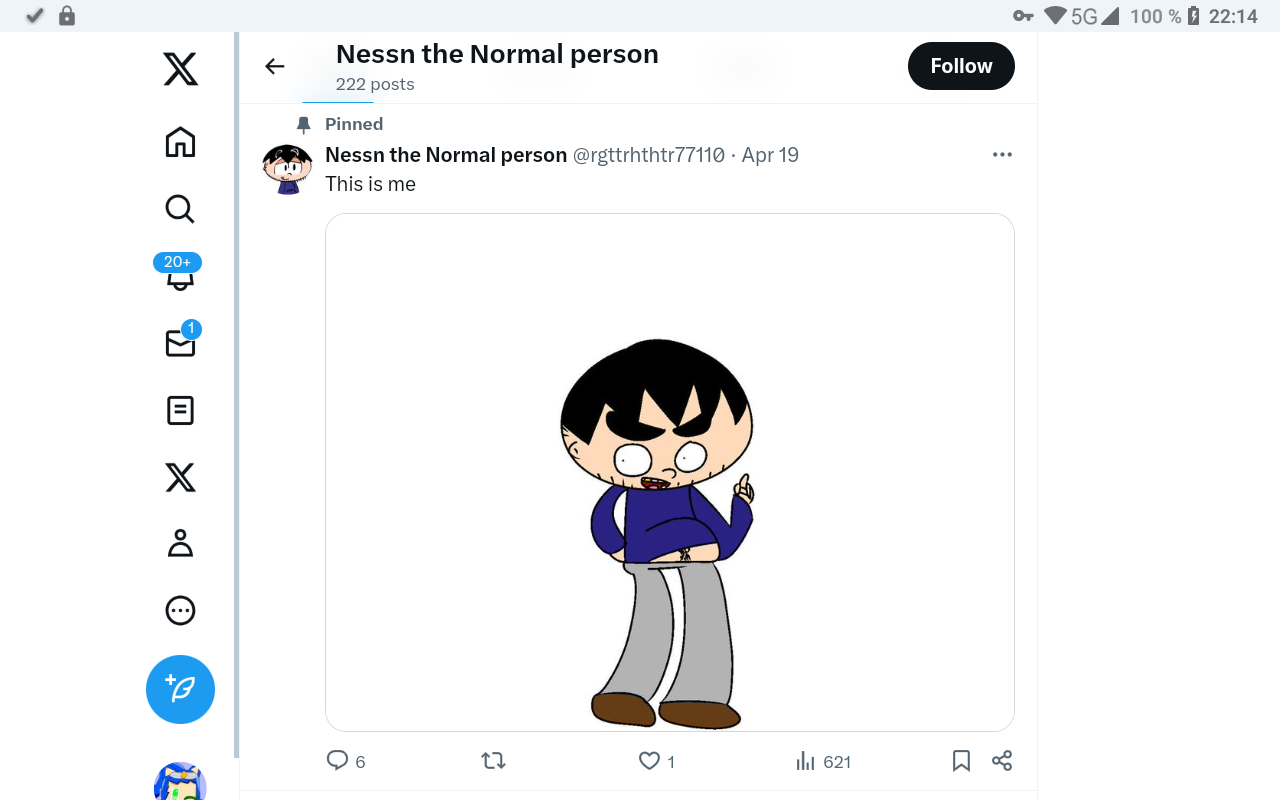'nxxxn' & Beyond: Navigating Online Search & Digital Safety
In the vast and ever-expanding digital landscape, search queries often serve as a window into the collective consciousness, revealing prevailing interests, curiosities, and sometimes, the more obscure corners of online exploration. One such term that occasionally surfaces in discussions about online search patterns is "nxxxn". While seemingly an arbitrary string of characters, its presence in search data, as indicated by various online platforms, underscores the complex and often unfiltered nature of internet content and user behavior. Understanding the context surrounding terms like 'nxxxn' is not merely about decoding a keyword; it's about grasping the broader implications for digital literacy, online safety, and the responsible consumption of information in the modern age.
This article aims to delve into the phenomenon of such search terms, using 'nxxxn' as a case study to explore the dynamics of online content, the mechanisms of search engines, and the critical importance of digital vigilance. We will navigate the landscape of user-generated content, the challenges of content moderation, and the essential tools and strategies individuals can employ to ensure a safer and more informed online experience. Our discussion will prioritize principles of E-E-A-T (Expertise, Experience, Authoritativeness, Trustworthiness) and YMYL (Your Money or Your Life), focusing on the educational aspects of navigating the internet responsibly.
Table of Contents
- Understanding the Digital Footprint of 'nxxxn'
- The Anatomy of Online Search Queries
- Navigating the Unfiltered Internet: Risks and Realities
- Digital Literacy: A Cornerstone of Online Safety
- Safeguarding Your Online Experience: Practical Steps
- The Evolution of Online Content and Consumption
- The Responsibility of Platforms and Users
- Looking Ahead: Fostering a Safer Digital Future
Understanding the Digital Footprint of 'nxxxn'
The term 'nxxxn', while not immediately recognizable as a standard word or phrase, appears in search data primarily associated with adult content platforms. This phenomenon is not unique to 'nxxxn'; many alphanumeric or slightly misspelled terms become popular search queries for specific types of content, often to bypass filters or due to the viral nature of certain keywords. The data provided, for instance, shows 'nxxxn' appearing in searches on platforms like Xnxx.com and Pornhub.com, alongside terms like "free sex videos," "Japanese videos," and "lesbian boobs sucking." This context clearly positions 'nxxxn' within the realm of explicit content searches. It's crucial to understand that the internet is a vast repository of information, much of which is user-generated and largely unregulated. Search engines, by design, aim to index and make accessible this content based on user queries. When a term like 'nxxxn' gains traction, it reflects a specific segment of user interest, regardless of the nature of the content. This digital footprint highlights the need for a nuanced understanding of how search terms function and the implications of engaging with the results they yield. The prevalence of such terms underscores the ongoing challenge of content moderation and the imperative for individuals to exercise caution and critical judgment when navigating online spaces.The Anatomy of Online Search Queries
Every time we type a word or phrase into a search engine, we initiate a complex process designed to retrieve the most relevant information. Terms like 'nxxxn' exemplify how diverse and sometimes unconventional these queries can be. Understanding the mechanics behind search queries is fundamental to appreciating the breadth of content available online and the responsibilities that come with accessing it.How Search Engines Process Queries
Search engines employ sophisticated algorithms to interpret user queries. When a user types 'nxxxn', the engine doesn't necessarily "understand" the term in a semantic sense, but rather matches it against its vast index of web pages, videos, images, and other digital assets. These algorithms consider various factors:- Keyword Matching: Directly matching the query to terms found on web pages.
- Contextual Relevance: Analyzing the surrounding text and categories to determine if the content is truly relevant to the query.
- Popularity and Authority: Pages that are frequently linked to or visited, or from authoritative sources, tend to rank higher.
- User Engagement: How users interact with search results (e.g., click-through rates, time spent on page) can influence future rankings.
The Role of User Intent
User intent is the underlying goal a person has when typing a query into a search engine. For a term like 'nxxxn', the intent is almost certainly navigational (to find a specific site or type of content) or informational (to see what results 'nxxxn' yields). Search engines strive to fulfill this intent, whether it's for academic research, shopping, or entertainment. However, when the intent is to access sensitive or unregulated content, the responsibility shifts significantly to the user. Understanding one's own intent and the potential consequences of fulfilling it is a critical aspect of digital literacy. It empowers individuals to make informed choices about what they consume online and to recognize the potential pitfalls, such as exposure to malware, privacy risks, or inappropriate content, particularly for younger audiences.Navigating the Unfiltered Internet: Risks and Realities
The internet, by its very nature, is a largely unfiltered environment. While search engines and platforms implement various content policies, a significant portion of online material remains unregulated. This reality presents several risks, especially when dealing with search terms like 'nxxxn' that lead to potentially sensitive or explicit content. * **Exposure to Inappropriate Content:** The most immediate risk, particularly for minors, is encountering content that is not age-appropriate or that promotes harmful ideologies. Terms like 'nxxxn' are direct gateways to such material. * **Malware and Cybersecurity Threats:** Many websites hosting unregulated content are also breeding grounds for malware, phishing attempts, and other cyber threats. Clicking on links from unknown sources, especially those promising "free" or "unrestricted" content, can compromise personal data and device security. * **Privacy Concerns:** Engaging with certain sites can lead to excessive data collection, tracking, and even exposure to scams. Users might unknowingly share personal information or be subjected to aggressive advertising. * **Legal and Ethical Implications:** Depending on the jurisdiction and the specific content, accessing or distributing certain materials can have serious legal consequences. This is particularly relevant for content involving minors or illegal activities. * **Addiction and Psychological Impact:** For some individuals, excessive consumption of certain types of online content can lead to addictive behaviors, distorted perceptions, and negative psychological effects. The "Data Kalimat" provided clearly shows the types of content associated with 'nxxxn' searches, including "free sex movies," "hot pussy, sexy girls in xxx rated porn clips," and various explicit scenarios. This underscores the very real risks associated with these search patterns. Acknowledging these realities is the first step toward promoting safer online habits and advocating for stronger digital literacy initiatives.Digital Literacy: A Cornerstone of Online Safety
In an age where information is abundant and easily accessible, digital literacy has become as crucial as traditional literacy. It encompasses the ability to find, evaluate, create, and communicate information, requiring both cognitive and technical skills. When confronting terms like 'nxxxn' and the content they lead to, digital literacy is paramount.Media Literacy and Critical Thinking
Media literacy involves the ability to access, analyze, evaluate, and create media in a variety of forms. For online content, this means:- Evaluating Sources: Understanding that not all information or content online is reliable or safe. This includes questioning the legitimacy of websites, especially those offering "free" services or explicit content.
- Recognizing Bias and Intent: Identifying the purpose behind content creation—is it to inform, entertain, or exploit?
- Understanding Algorithms: Recognizing that search results and social media feeds are curated by algorithms, which can sometimes lead users down rabbit holes of similar content, potentially reinforcing harmful views or exposing them to more sensitive material.
Understanding Content Categorization
While search engines and platforms attempt to categorize content (e.g., "safe search" filters), these systems are not foolproof. Users must understand that:- Content is often tagged or described by its creators, and these tags may not always be accurate or appropriate.
- Age restrictions and content warnings exist, but they can often be bypassed, especially by determined users or minors.
- The sheer volume of new content uploaded daily makes comprehensive human moderation impossible, relying heavily on automated systems that can be imperfect.
Safeguarding Your Online Experience: Practical Steps
Given the complexities of online content and search terms like 'nxxxn', taking proactive steps to safeguard one's online experience is essential. These measures are particularly important for parents and guardians managing internet access for children. * **Utilize Parental Control Software:** Many operating systems, browsers, and internet service providers offer built-in parental control features that can filter content, restrict access to certain websites, and monitor online activity. Tools like Google Family Link, Microsoft Family Safety, or dedicated third-party software can be invaluable. * **Enable Safe Search Settings:** Most major search engines (Google, Bing, DuckDuckGo) offer "Safe Search" or equivalent filters that block explicit content from search results. While not 100% effective, they significantly reduce exposure. * **Educate and Communicate:** Open and honest conversations with children about online risks, appropriate content, and what to do if they encounter something uncomfortable are far more effective than mere restrictions. Discuss the nature of search terms like 'nxxxn' in an age-appropriate manner, focusing on the concept of unregulated content and its dangers. * **Use Ad Blockers and Antivirus Software:** These tools help prevent pop-ups, malicious ads, and the download of malware often associated with less reputable websites. * **Review Privacy Settings:** Regularly check and adjust privacy settings on social media platforms, browsers, and apps to limit data sharing and tracking. * **Be Mindful of Downloads:** Exercise extreme caution when downloading files from unknown sources, especially those promising free access to copyrighted or sensitive material. * **Report Inappropriate Content:** If you encounter illegal or harmful content, report it to the platform it's hosted on and, if necessary, to relevant law enforcement agencies. These practical steps empower individuals to create a safer digital environment, reducing the likelihood of encountering or being negatively impacted by content associated with terms like 'nxxxn'.The Evolution of Online Content and Consumption
The internet has transformed from a static collection of web pages into a dynamic, interactive ecosystem where content is constantly being created, shared, and consumed. This evolution has profoundly impacted how search terms like 'nxxxn' gain prominence. Initially, content was primarily text-based; now, video dominates, as evidenced by the "Data Kalimat" mentioning "free sex movies" and "porn videos" in relation to 'nxxxn'. The rise of user-generated content platforms (e.g., YouTube, TikTok, various adult content sites) means that anyone can be a content creator. This democratization of content has led to an explosion of diverse material, but also a proliferation of unregulated and potentially harmful content. The ease with which videos can be uploaded and shared, often without stringent pre-screening, means that terms like 'nxxxn' can quickly lead users to a vast array of explicit material. Furthermore, the shift to mobile devices has made content consumption ubiquitous. People access the internet anytime, anywhere, often through apps that may not have the same level of filtering as desktop browsers. This constant connectivity, combined with personalized algorithms that often recommend "similar" content, can create echo chambers or lead users down paths to more extreme or sensitive material, making the responsible handling of search terms like 'nxxxn' even more critical. Understanding these trends helps contextualize why certain search terms become popular and why digital literacy is an ongoing, evolving requirement.The Responsibility of Platforms and Users
The presence of search terms like 'nxxxn' and the content they represent highlight a shared responsibility between online platforms and individual users. **Platform Responsibility:** * **Content Moderation:** Platforms have a moral and often legal obligation to moderate content, removing illegal, harmful, or inappropriate material. This includes investing in advanced AI tools and human review teams. * **Age Verification:** Implementing robust age verification systems to prevent minors from accessing adult content is crucial. * **Transparency:** Being transparent about their content policies, how they handle user data, and how their algorithms work builds trust. * **User Safety Features:** Providing easy-to-use tools for reporting content, blocking users, and setting privacy preferences. **User Responsibility:** * **Informed Choices:** Users must be aware of the content they are consuming and the potential risks involved. This includes understanding that terms like 'nxxxn' lead to specific types of content. * **Ethical Consumption:** Reflecting on the ethical implications of consuming certain content, especially if it involves exploitation or illegal activities. * **Digital Citizenship:** Contributing positively to the online community, reporting abuse, and promoting respectful interactions. * **Parental Guidance:** Parents and guardians have a primary responsibility to guide and protect minors in their online activities, setting boundaries and educating them about safe internet use. The "Data Kalimat" shows that platforms like Xnxx.com and Pornhub.com host millions of videos, emphasizing the scale of content they manage. While they provide access, the ultimate responsibility for what is searched and consumed rests with the individual, especially concerning terms like 'nxxxn'.Looking Ahead: Fostering a Safer Digital Future
The journey to a safer and more responsible digital future is ongoing. The existence of search terms like 'nxxxn' serves as a constant reminder of the challenges inherent in a free and open internet. However, by focusing on education, technological solutions, and collaborative efforts, we can strive to mitigate the risks and maximize the benefits of the digital age. Key areas for future focus include: * **Enhanced Digital Literacy Programs:** Integrating comprehensive digital literacy education into school curricula and public awareness campaigns, starting from an early age. This includes teaching about online safety, critical evaluation of content, and responsible digital citizenship. * **Technological Advancements in Content Filtering:** Developing more sophisticated AI and machine learning models that can accurately identify and filter harmful content, while respecting user privacy. * **Stronger Regulatory Frameworks:** Governments and international bodies need to work together to establish clear, enforceable regulations for online content, especially concerning child protection and illegal material. * **Industry Collaboration:** Tech companies, content creators, and internet service providers must collaborate to share best practices and develop common standards for online safety. * **Parental Engagement:** Empowering parents with resources and knowledge to effectively guide their children through the digital world. Ultimately, navigating the complexities of online search terms like 'nxxxn' requires a multi-faceted approach. It's about empowering individuals with the knowledge and tools to make informed decisions, fostering a culture of responsibility among platforms, and continuously adapting to the evolving digital landscape. Only through collective effort can we ensure that the internet remains a valuable resource for connection and information, while minimizing its potential harms.The digital world offers immense opportunities, but it also demands vigilance and informed choices. Understanding the implications of search terms like 'nxxxn' is a step towards becoming a more responsible and secure digital citizen. What are your thoughts on how we can better educate ourselves and future generations about online safety? Share your insights in the comments below, or explore our other articles on digital well-being and cybersecurity.
- Guerdy Abraira Net Worth
- Kenny Loggins Siblings
- Josh Hartnett Workout
- Population Of Sunni In Iran
- Valorant Flashback
- Arene Mozambique
- Golden Tour Jungkook
- Yvonne Zima Young
- How Long Do Contestants Stay On Love Island
- Tulsi Gabbard Iran

I edited NXXXN by MissKoehler49 on DeviantArt

Neo Denies Nxxxn's Apology by MissKoehler49 on DeviantArt

Nxxxn on Twitter are watched me!? Screw him! by MiniBaby2022 on DeviantArt